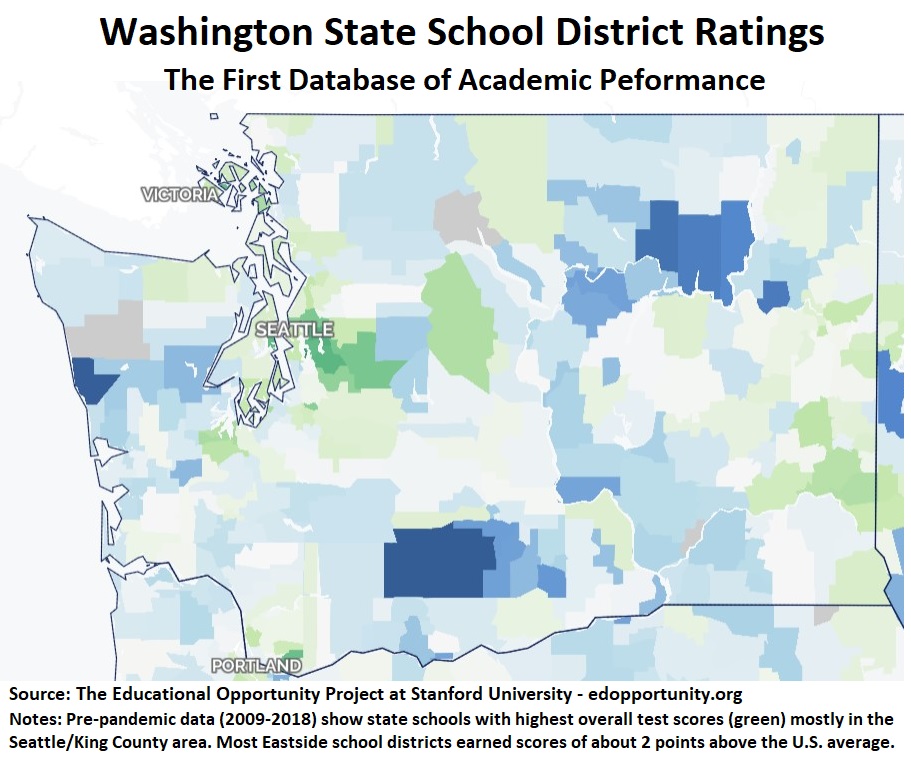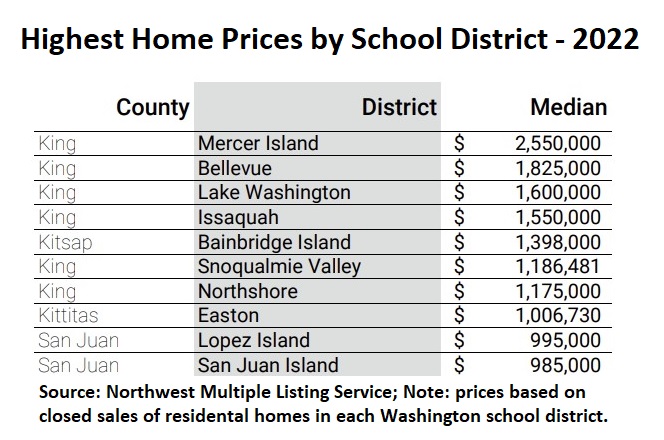Home buyers often seek out local insights from their real estate professionals on everything from restaurants and shopping, but everyone should tread carefully when exchanging their impressions about schools.
Some buyers are focused on rankings and can be dead set on moving into a certain school district.
“They’re not going to be swayed into going to another town because they can find more value,” says Gerry Bourgeois, project manager with Massachusetts-based Lamacchia Realty, quoted by Seattle Agent Magazine. “That’s secondary; they’re actually buying [into] the school district.”
When asked pointed questions, I politely decline to answer with a specific response and tell buyers to consult resources dedicated to providing them with facts.
You see, it is illegal for a Realtor® to direct people to or from one area of King County – that’s called “steering” and is illegal – but there is nothing wrong with sharing websites and other resources. Most buyers – not all – tend to understand the potential liability people working in our industry may face.
One in every four homebuyers was an older millennial, aged 32 to 41, according to the National Association of Realtors’® (NAR) 2022 Generational Trends report. Forty percent of that group said the quality of the school system was an important factor in choosing a neighborhood.
Parents have different reasons for buying a home in a school district. It could be because it ranks highly in national or state surveys, that there is a winning sports program or is known for the arts.

And while some generations of home buyers may want so-called good schools, others may want to live near a concentration of amenities such as a pharmacy, hardware store, cinema and restaurants. Every buyer is different. Isn’t that what makes consumer choice great?
After the isolation of the pandemic, people are exploring again and reprioritizing aspects of their life. That can include a more spacious backyard, greater access to what cities have to offer and, yes, select, “top” schools that fit the needs of parents with student-age children.

To be clear, the examination of this topic is in no way meant to steer prospective buyers in one direction or another based on the map and numbers shown here. It is up to consumers to find what works for them and real estate pros like me can be their source for those sources. (The same is true for crime data.)
“We never want to direct clients toward or away from certain school districts based on hearsay or impressions,” says Alexia Smokler, Director of NAR’s Fair Housing Policy & Program. “Implicit biases about the demographics of the students in a school can affect our perception of what schools are good or bad.”
Of course, independent school rating sites can be skewed as well. For example, tracking test scores alone don’t necessarily showcase the plusses and minuses of the school and its district. That’s particularly true when a child may have special needs. It’s always helpful to speak directly to school administrators, check their websites or schedule a meeting to visit the learning facility.
Beyond schools and crime stats, there are many other important items to consider when buying a home. Take Seattle for example: Our fine city is comprised of neighborhoods that were once their own towns – Fremont, Ballard, Columbia City – and they have distinct commercial areas to enjoy.
People often gravitate toward amenity-filled areas that also offer easy access to downtown. That makes public transportation and quality roads another plus to our city – and it’s only going to get better once the light rail extensions are woven into the existing fabric of the transit network.
Realtors® should not offer opinions about a school’s quality but they can provide data and resources to allow buyers to make up their minds. Recent debates over curricula and library books – not necessarily factored into scoring websites – may prompt parents to inquire about the schools’ suitability for their children.
I have a duty to be fair and ethical in my dealings with people I come into contact. My background includes more than 25 years as a journalist – including 15 with the parent company of The Wall Street Journal – so I know a thing or two about ethics, establishing reliable sources and reporting information. I will always strive to be objective and avoid delivering opinion over fact.
It usually comes down to the same thing that you have heard before – location, location, location. Every area has its unique qualities – and quirks – and what works for one set of buyers may not meet the needs of others.
Interested in learning more about certain neighborhoods or receiving residential real estate sales data from a particular location? Contact me and we can discuss your home-buying (or -selling) needs.




